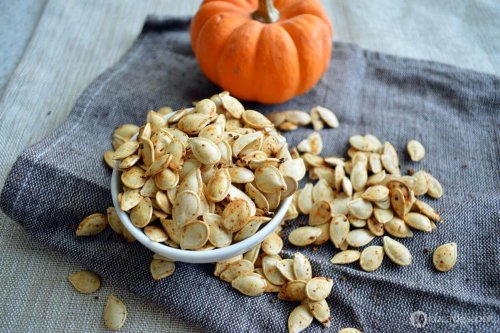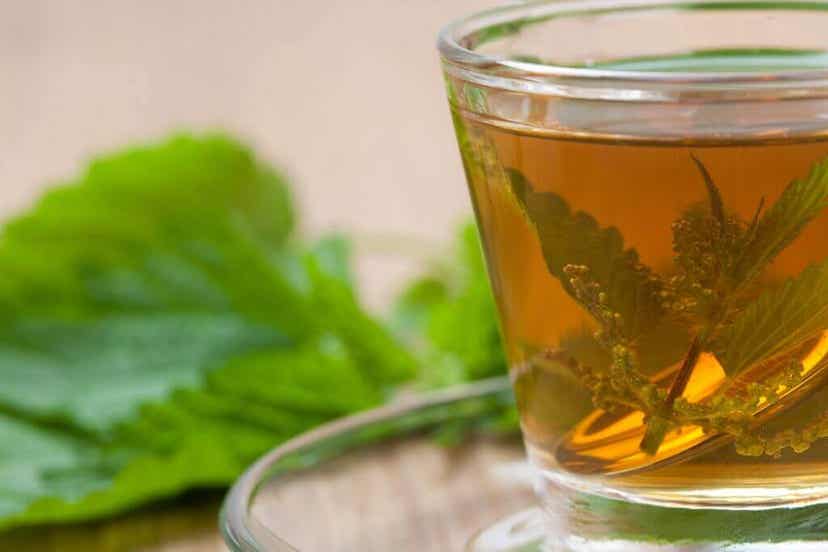Prostate problems - nine natural remedies

Prostate problems are more frequent after the age of 50. However, young men aren’t exempt from getting them. Doctors often find abnormalities in this organ during a routine rectal exam.
In any case, there are many home remedies that can prevent these diseases, especially when they’re part of a healthy lifestyle.
Of course, you must keep in mind that these aren’t a first-line treatment for diseases. They don’t have miraculous properties either. But, consuming them on a regular basis can contribute to the good health of the prostate.
Prostate problems
The prostate is the gland that helps produce semen. Therefore, it’s part of the male reproductive system. This gland surrounds the duct responsible for the release of urine from the bladder.
Although it is the size of a walnut, with age it increases in size. This can lead to major health problems. According to a publication in the National Institute on Aging, some of the most frequent problems of this gland are:
- Prostatitis: Inflammation of the prostate. It’s usually caused by bacteria.
- Benign prostatic hyperplasia: Enlarged prostate common in men 50 years or older. It causes abnormal urination or the feeling of having to urinate, especially at night.
- Prostate cancer: Causes pain and problems urinating normally.
Read this article too: 8 Aphrodisiacs For Men
Natural homemade prostate remedies
Run any signs of prostate disease by your doctor or urologist. Even though many of these are of no concern, it’s better to receive a relevant diagnosis. In addition, these professionals have the knowledge to suggest a treatment if there’s an illness.
Having said that, we’ll now reveal some home remedies that can help promote prostate health. In general, you can include them as part of your regular diet, as long as there are no contraindications by your doctor. Check them out!
Pumpkin seeds
Pumpkin seeds are one of the most popular remedies for treating prostate problems. This is mainly due to the fact that they are rich in zinc. This mineral is very healthy for the prostate. In fact, a study published in Urologia Internationalis especially recommends them as a remedy to prevent and treat benign prostatic hyperplasia.
Also, as a study in Current Opinion points out, these seeds have a high concentration of a substance called beta-sitosterol. It can improve urine flow and reduce the amount of urine left in the bladder after urinating. Eat them as a snack or add them to soups, juices, and smoothies.

Take a look at this article too: Detox Your Body with This Ginger, Turmeric, and Cayenne Pepper Beverage
Watermelon Seed Tea
Popular culture suggests that watermelon seed tea helps eliminate waste and improves bladder and kidney problems. In this regard, a study on rats, published by the European Journal of Medicinal Plants found that these kinds of seeds improve the levels of a prostate-specific antigen (PSA) as well as the symptoms of an enlarged prostate.
While there’s still not enough evidence, many believe the effect in men could be similar. So, if you’re ready to try it, grind the fresh watermelon seeds and add them to a cup of hot water. Wait for it to cool down enough and drink it up to 2 times a day.
Nettles
In addition to their purifying properties, the consumption of nettles can also help control the size of your prostate and keep your urinary tract healthy. There aren’t many studies yet but one conducted in 2015 reveals they can help decrease benign prostatic hyperplasia.
You can take this medicinal plant as a supplement in the form of an infusion, or just add them to soups and broths. You must be very careful when handling it because it causes rashes. In addition, keep in mind that it’s contraindicated in case of diabetes, low blood pressure, or kidney problems.
Tomatoes for prostate problems

No food on its own can prevent or treat chronic diseases such as cancer. However, some studies show that some of its components have health benefits.
For example, research published in the Journal of the National Cancer Institute indicates that lycopene, the main antioxidant in tomatoes, is directly associated with a lower risk of prostate cancer. Take advantage of its properties through the consumption of tomato juice, or by adding it to salads and soups.
Prostate remedies are simply supplements
The consumption of these natural remedies can contribute to the prevention and reduction of the progression of some prostate problems. However, these are only supplements, and under no circumstances should they replace medical treatment. Consult your doctors if you suspect you have prostate problems.
All cited sources were thoroughly reviewed by our team to ensure their quality, reliability, currency, and validity. The bibliography of this article was considered reliable and of academic or scientific accuracy.
- Espinosa, G. (2013, January). Nutrition and benign prostatic hyperplasia. Current Opinion in Urology. https://doi.org/10.1097/MOU.0b013e32835abd05
- Vahlensieck, W., Theurer, C., Pfitzer, E., Patz, B., Banik, N., & Engelmann, U. (2015). Effects of pumpkin seed in men with lower urinary tract symptoms due to benign prostatic hyperplasia in the one-year, randomized, placebo-controlled GRANU study. Urologia Internationalis, 94(3), 286–295. https://doi.org/10.1159/000362903
- Olamide, A. (2011). Effects of Methanolic Extract of Citrullus lanatus Seed on Experimentally Induced Prostatic Hyperplasia. European Journal of Medicinal Plants, 1(4), 171–179. https://doi.org/10.9734/ejmp/2011/588
- Zu, K., Mucci, L., Rosner, B. A., Clinton, S. K., Loda, M., Stampfer, M. J., & Giovannucci, E. (2014). Dietary lycopene, angiogenesis, and prostate cancer: A prospective study in the prostate-specific antigen era. Journal of the National Cancer Institute, 106(2). https://doi.org/10.1093/jnci/djt430
This text is provided for informational purposes only and does not replace consultation with a professional. If in doubt, consult your specialist.








